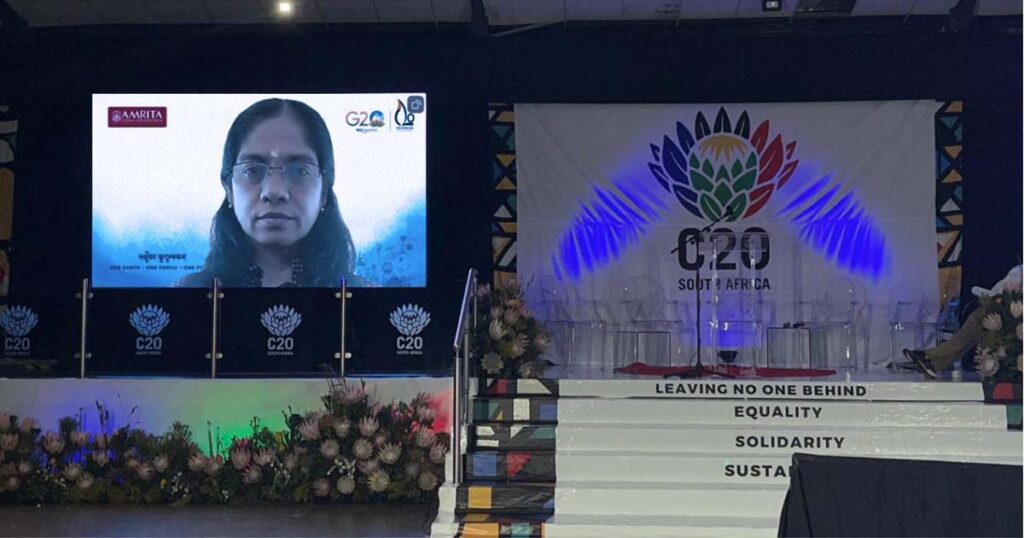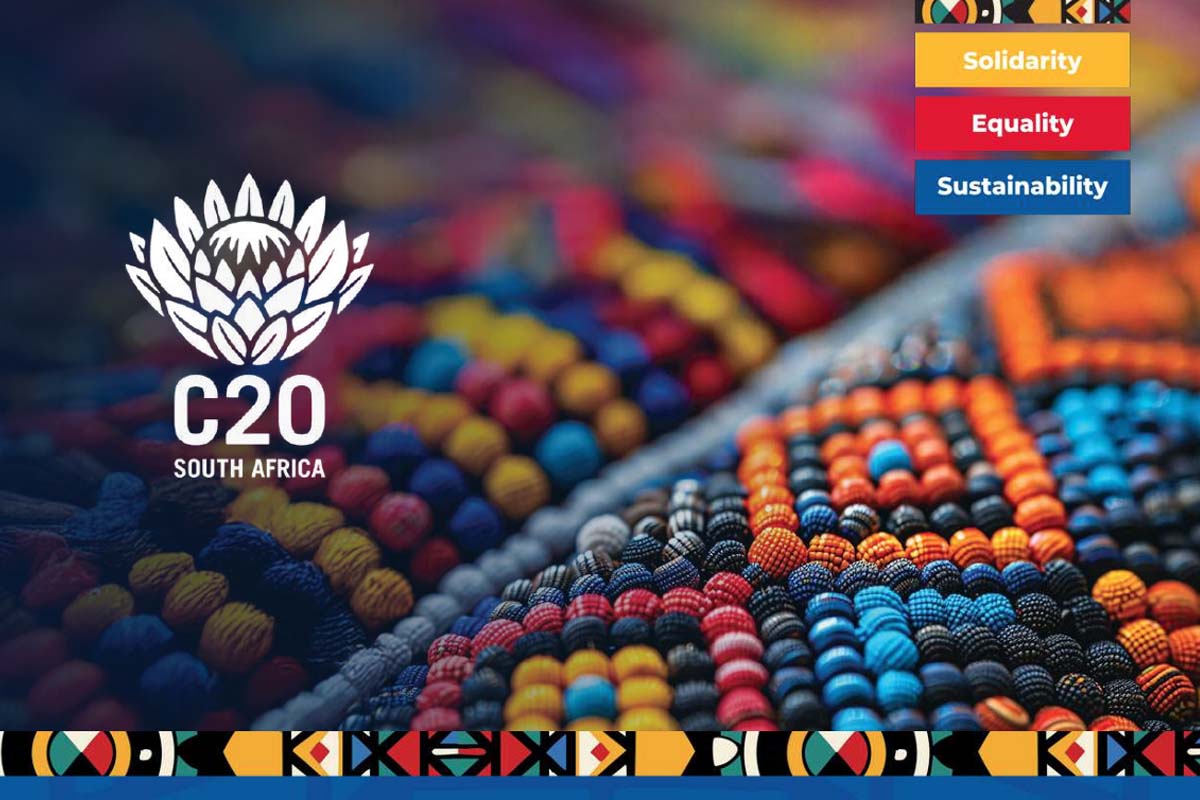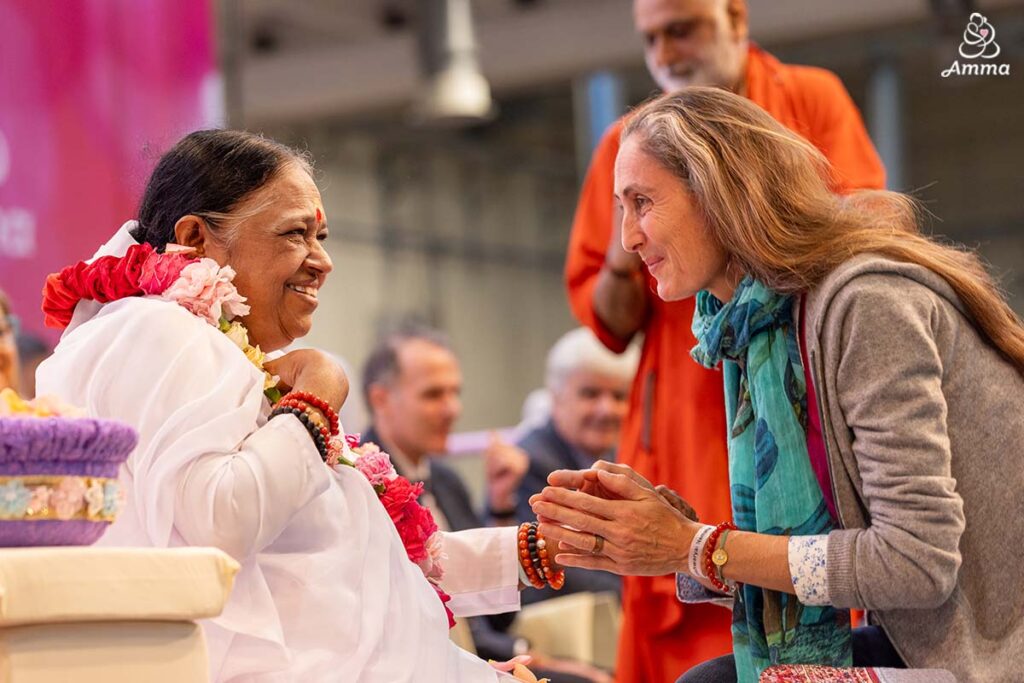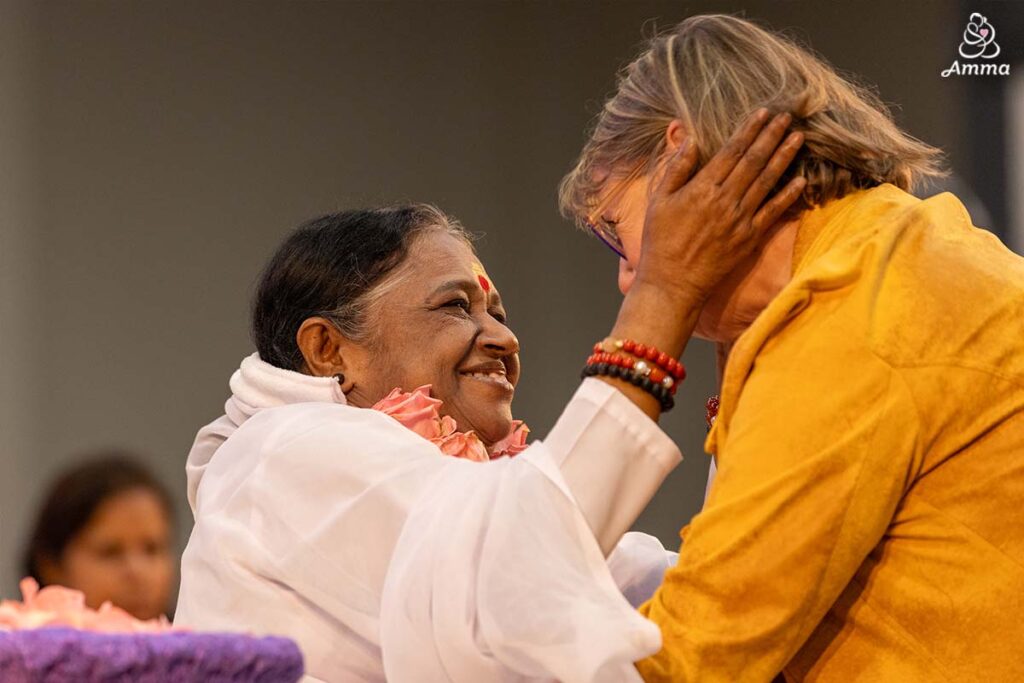Guided by Amma’s vision, India’s voice resonated strongly at the Civil 20 South Africa Summit through the address of Amrita University’s Dr Krishnashree Achuthan. She spoke on behalf of Civil 20 India for which Amma was the Hon’ble Chair during India’s G20 Presidency 2023.
Dr Krishnashree presented the concept of global equality shaped by compassion, collective wisdom and civil society leadership. She highlighted how the world community should go beyond just discussion and implement shared values into concrete policies that will uplift the vulnerable and strengthen social justice.
She shared how India’s Civil 20 became one of the most inclusive in G20 history, engaging over 6000 civil society organisations (CSOs) from 154 countries. This encouraged multilingual participation and ensured that people from diverse socio-cultural backgrounds contributed to policy dialogues.
Through digital participation and community-rooted initiatives, C20 India demonstrated that governance must be both technologically enabled and deeply human. Equality, in India’s view, is a restoring force that balances ethics with economics, innovation with inclusion, and ambition with planetary responsibility.
Those most often overlooked—women, youth, informal workers, teachers, caregivers, persons with disabilities, Indigenous communities, and migrants—must be central to policymaking rather than peripheral.
Amma’s guidance in India’s approach focused on empowering women and youth, promoting transparent data ecosystems, strengthening resilient communities, and building ethical digital platforms. Also, it highlighted the need for a governance framework that integrates technological progress with values such as empathy, fairness, and sustainability.
The policy pack of C20 South Africa 2025 represented the contributions of more than 3000 organisations working across fourteen working groups. Their suggestions were for reforms that can change global systems to be fair with shared responsibility.
They called for equitable financial governance, debt justice, gender equality, recognition of the care economy, improved labour rights, climate and environmental justice, cultural and knowledge sovereignty, ethical AI governance, disability inclusion, and the protection of civic space.
The policy pack also urges transitions that are just and community-led, digital systems that are accessible and rights-based, and safeguarding civic freedom in support of migrant communities.
By centering Indigenous knowledge, community-defined resilience, and accountable public systems, the policy pack aligns with the broader call from the Global South to reshape our world’s structures rather than merely adapt to them.
In this journey from dialogue to action, equality emerges not as the end of a conversation but as the beginning of a new ethic for our world—one grounded in access, compassion, dignity, and the moral clarity of a united Global South.
Dr Krishnashree acknowledged and appreciated the efforts and contributions of C20 Brazil 2024, which encouraged nations to pursue solutions that confront hunger, climate vulnerability, and inequality. This reinforced that civil society is not merely a consultative partner, but a co-architect of global governance, ensuring that policies reflect lived realities.
She emphasised that India and Africa share a common principle: true equality requires digital public infrastructure that empowers instead of excludes, financial systems that uplift rather than extract, and education systems that foster both knowledge and dignity.
Those most often overlooked—women, youth, informal workers, teachers, caregivers, persons with disabilities, Indigenous communities, and migrants—must be central to policymaking rather than peripheral.
From India’s community-driven initiatives to Africa’s structural reforms, the C20 has shown that empathy can become evidence, and evidence can become policy. In this journey from dialogue to action, equality emerges not as the end of a conversation but as the beginning of a new ethic for our world—one grounded in access, compassion, dignity, and the moral clarity of a united Global South.
Dr Krishnasree concluded her address by saying that India’s contribution to the C20 continues to inspire international cooperation based on humanity. As Amma often says, true leadership is measured not by power but by how deeply it uplifts the most vulnerable. It is this spirit of compassion-led governance that continues to shape a future where equality is not just an ideal but a reality for everyone.






